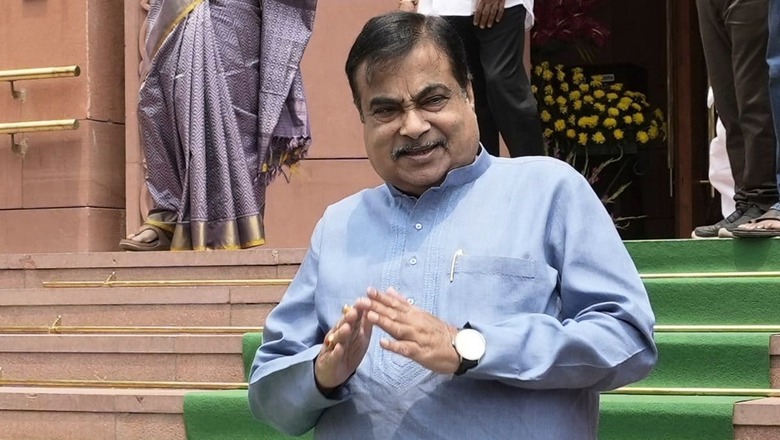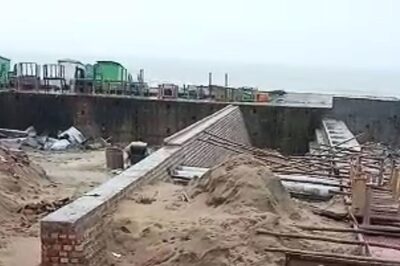
views
Union minister Nitin Gadkari, during a recent event in Pune, unveiled an ambitious plan for a new 14-lane road project that will commence after the descent from Mumbai’s Atal Setu. The expansive road will enhance connectivity between major cities such as Bengaluru and Sambhajinagar, ultimately linking to the Pune Ring Road.
The project is a significant part of the government’s vision to modernise India’s infrastructure and improve regional connectivity. However, Gadkari emphasised that infrastructure growth must go together with improving the quality of life for the rural population and urban poor.
In his address, Gadkari highlighted the government’s commitment to sustainability, particularly in road construction. He noted that eight million tonnes of waste have already been repurposed in the development of new roads, showcasing how environmental challenges can be turned into opportunities. He also pointed out the vast scope for research in various sectors, especially in rural areas.
Gadkari emphasised that self-reliance can only be achieved if the lives of the poor are uplifted, and rural economies are strengthened. “Improving the livelihood of farmers and rural communities is key to reducing migration to cities,” he said.
Marking Engineers’ Day, Gadkari paid tribute to the legendary Indian engineer Sir M Visvesvaraya. He recalled that Visvesvaraya had worked in Maharashtra for 28 years before moving to Gujarat, where he spearheaded several major projects. Gadkari praised Visvesvaraya’s legacy and stressed the importance of recognising talent and hard work in the engineering field, free from bias.
“We are now the third-largest economy in terms of GST collection, and research plays a significant role in this achievement,” he added, underlining the connection between innovation and economic growth.
Gadkari also looked ahead to the future of India’s transportation sector. While he acknowledged that diesel vehicles will remain prevalent for the next 25 years, he pointed to significant changes on the horizon. The recent discovery of lithium reserves in Jammu and Kashmir, he said, would help India transition to electric vehicles more rapidly. Additionally, Gadkari highlighted India’s goal to become a global semiconductor hub within the next two years, which would position the country as a key player in the technology and automotive industries.
Discussing India’s growing urbanisation, Gadkari stressed the need to bolster rural economies through modern technology and infrastructure. He argued that this approach would curb the migration to cities and improve the overall quality of life in villages. According to the minister, while there is no shortage of funds, the challenge lies in ensuring honest leadership to drive these projects forward.
In closing, Gadkari credited his own achievements to his courage and determination, saying infrastructure projects progress faster when there is both funding and pressure to deliver results. “The more effort we apply, the quicker the work gets done,” he concluded.




















Comments
0 comment